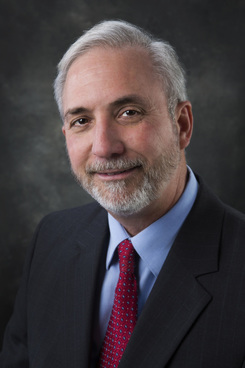Texas Lawyers Scott Golemon and Jay Wright Want Your Vote for Chief Justice of Beaumont Court of Appeals
Scott Golemon and Jay Wright are competing for the bench in the runoff.
June 21, 2020 at 05:01 PM
9 minute read
 Scott Golemon, left, and Jay Wright, right, are competing in the Republican primary runoff for chief justice of the 9th Court of Appeals in Beaumont, Texas. Courtesy photos
Scott Golemon, left, and Jay Wright, right, are competing in the Republican primary runoff for chief justice of the 9th Court of Appeals in Beaumont, Texas. Courtesy photos
The number of trials and appeals handled by the two candidates for chief justice of Beaumont's Ninth Court of Appeals is becoming a campaign issue in the Republican primary runoff for the seat.
Scott Golemon and Jay Wright are competing for the bench in the runoff, and in a Q&A for Texas Lawyer, they each argued why they're more qualified for the bench. Without a Democrat in the race in November, whoever wins the runoff will be the next chief justice.
Wright argued that he's handled 114 appellate cases, which is more than his opponent. He claims he's handled 140 jury trials and hundreds of nonjury trials in matters involving civil, family, probate and criminal law.
"These are all the types of cases that are heard by the Ninth Court of Appeals," Wright wrote.
But Golemon argued that he has the most experience and is better qualified, because he's tried over 300 jury trials, and over 50 appeals.
"In addition, my opponent has campaigned that he should be elected so that he can put a stop to the government intrusion of our constitutional rights, and more specifically the erroneous decisions made by the U.S. Supreme Court, which would amount to him being an activist judge legislating from the bench," Golemon wrote. "I, on the other hand, will properly interpret our constitution and laws."
Texas Lawyer is publishing Q&As with the judicial candidates in party primary runoffs. Early voting is June 29 to July 10, and election day is July 14.
Here are the Q&As for Golemon and Wright.
Read more: Texas Voters: Meet the Candidates Running for Judge in July Primary Runoffs
Scott Golemon
What is a brief biography of work experience, educational qualifications and career honors that you want voters to know about?
 Scott Golemon. Courtesy photo.
Scott Golemon. Courtesy photo.Licensed to practice law in Texas since July 1988. I am also licensed to practice in the U.S. District Court for the Southern District of Texas. Over 31 years of trial experience in all Texas courts and appellate experience in courts of appeals across the state of Texas and in the Texas Supreme Court. Up to twenty trials per year, which is an extremely busy trial schedule that is only surpassed by criminal trial prosecutors.
Involved in civil litigation that at times also involves family law and probate issues. Involved in civil litigation that at times also involves criminal law issues. Across the board civil litigation, representing plaintiffs and defendants in areas of: personal injury, wrongful death, medical malpractice, products liability, construction, real estate, business, consumer, contracts, fraud, deceptive trade practices, and oil and gas. My practice also involves business matters, such as business formation, real estate documentation and wills.
Why do you want this position?
I am running for chief justice of the Ninth District Court of Appeals. As you know, we have the greatest judicial system in the world, which can only survive by the enforcement of our laws and our constitution. However, it is at a crossroads, because there are politicians, the media and some judges that are ignoring our laws, watering down our laws or blatantly refusing to enforce our laws.
I have been a civil trial attorney for over 31 years, handling cases all over the state of Texas. Unfortunately, in some of the trials and appeals that I have handled across the state, I have personally seen judges refuse to follow and enforce our laws, but instead have legislated from the bench (created new law while ignoring prior legal precedent).
This is why I want to be the chief justice of the Ninth District Court of Appeals:
- I will follow and enforce our laws.
- I will not legislate from the bench.
- I will uphold the Constitution and our laws that have made Texas great and ensure fair and equal access and justice for all.
How are you different or better suited for the bench than your opponent in the election?
A court of appeals justice reviews trials that are appealed from district courts and county courts-at-law. The justice must ensure that the proper laws, evidence and procedures were applied and followed. Trial and appellate experience is not something that you learn from reading or by being taught after one becomes a justice, but can only be obtained in the courtroom and by handling appeals. I have handled over 300 jury trials and over 50 appeals in my 31 years as a civil trial attorney. This extensive experience is required to be qualified to serve as an appellate Justice.
My longest trial lasted six weeks in federal court in Houston, which was against the Ninth District Court of Appeals current Chief Justice Steve McKeithen when he was the Montgomery County attorney. I have had at least three trials that lasted three weeks and at least two dozen trials that lasted two weeks.
The most complicated and complex cases that any justice will handle are from civil jury trials. I have the most experience and am best qualified, because I have tried over 300 civil jury trials, whereas my opponent has only tried 55 civil jury trials. I have been involved in over 50 appeals in 10 of the 14 courts of appeals, as well as the Texas Supreme Court. My opponent has been involved in more appeals; however, the vast majority of them have been criminal appeals and it appears that he may have never won any of those appeals. In addition, my opponent has campaigned that he should be elected so that he can put a stop to the government intrusion of our constitutional rights, and more specifically the erroneous decisions made by the U.S. Supreme Court, which would amount to him being an activist judge legislating from the bench. I, on the other hand, will properly interpret our constitution and laws, I will follow and enforce our laws equally, fairly and justly, and I will not legislate from the bench.
How would you go about managing this court's docket efficiently and effectively?
Currently the Ninth District Court of Appeals is timely disposing of the appealed cases and does not have a backlog of cases. The chief justice and the other three justices do not get to pick and choose which cases they want to decide or who will author the opinion. That is handled by the clerk of the court of appeals, who uses a rotation system when the case first reaches the court. Each case is assigned to three justices on a rotation basis and the author of the opinion is also assigned on a rotation basis. Therefore, the Ninth District Court of Appeals is currently managing the court's docket efficiently and effectively.
Where can voters go to get more information about you?
- Website: golemonforjudge.com
Jay Wright
What is a brief biography of work experience, educational qualifications and career honors that you want voters to know about?
 Jay Wright. Courtesy photo.
Jay Wright. Courtesy photo.Graduate of University of Houston Law School 1985. Graduate of Corpus Christi State University (now Texas A&M) Political Science, 1982. Nueces County Attorney's Office Prosecutor 1986-1988; Chief of Criminal Division 1988-1990; Chief of Civil Division 1990-1992. Private practice since 1993 has consisted of broad-based civil, family, juvenile, probate, criminal and appellate practice having tried more than 140 jury trials and having been lead counsel on more than 117 appeals in Texas in various courts of appeals, the Supreme Court and Court of Criminal Appeals. I have also done appellate cases in the U.S. Court of Appeals for the Fifth Circuit and filed petitions for writ of certiorari in the United State Supreme Court.
Why do you want this position?
I'm running for this position to encourage the originalist philosophy in our appellate courts just as Antonin Scalia and Clarence Thomas have brought it to the Supreme Court. We need an attorney who has handled each of the kinds of cases that are heard by the Ninth Court of Appeals (i.e. civil, criminal, family and probate) to review and render decisions of the lower trial court appeals. I believe it takes broad-based trial and appellate experience to put the issues in context that are brought before the court of appeals.
How are you different or better suited for the bench than your opponent in the election?
More than 117 appellate cases (more than four times as many as my opponent) involving civil law, family law, probate law and criminal law over the last 34 years of law practice. More than 140 jury trials involving criminal (prosecution and defense), civil (plaintiff and defense), juvenile, and probate. I've had nonjury trials in hundreds of civil (contract, construction, Deceptive Trade Practices Act, employment, personal injury, etc.) and family law cases in my practice and have dealt with a broad range of issues at trial and on appeal. These are all the types of cases that are heard by the Ninth Court of Appeals.
How would you go about managing this court's docket efficiently and effectively?
The effective movement of cases is done by holding the court to a firm submission schedule and opinion-writing deadlines so that cases don't get backlogged waiting on opinions to be concluded and issued.
Where can voters go to get more information about you?
- Website: jaywrightcampaign.com
- Resume
This content has been archived. It is available through our partners, LexisNexis® and Bloomberg Law.
To view this content, please continue to their sites.
Not a Lexis Subscriber?
Subscribe Now
Not a Bloomberg Law Subscriber?
Subscribe Now
NOT FOR REPRINT
© 2025 ALM Global, LLC, All Rights Reserved. Request academic re-use from www.copyright.com. All other uses, submit a request to [email protected]. For more information visit Asset & Logo Licensing.
You Might Like
View All
Are Counsel Ranks Getting 'Squeezed' as Nonequity and Associate Pay Grows?
5 minute read
Vinson & Elkins Expands Environmental Team with Chair of Texas Commission on Environmental Quality
4 minute read
Nondisparagement Clauses in Divorce: Balancing Family Harmony and Free Speech
6 minute read
Houston Trial Lawyer Mary-Olga Lovett Leaves King & Spalding to Open Boutique
3 minute readTrending Stories
Who Got The Work
J. Brugh Lower of Gibbons has entered an appearance for industrial equipment supplier Devco Corporation in a pending trademark infringement lawsuit. The suit, accusing the defendant of selling knock-off Graco products, was filed Dec. 18 in New Jersey District Court by Rivkin Radler on behalf of Graco Inc. and Graco Minnesota. The case, assigned to U.S. District Judge Zahid N. Quraishi, is 3:24-cv-11294, Graco Inc. et al v. Devco Corporation.
Who Got The Work
Rebecca Maller-Stein and Kent A. Yalowitz of Arnold & Porter Kaye Scholer have entered their appearances for Hanaco Venture Capital and its executives, Lior Prosor and David Frankel, in a pending securities lawsuit. The action, filed on Dec. 24 in New York Southern District Court by Zell, Aron & Co. on behalf of Goldeneye Advisors, accuses the defendants of negligently and fraudulently managing the plaintiff's $1 million investment. The case, assigned to U.S. District Judge Vernon S. Broderick, is 1:24-cv-09918, Goldeneye Advisors, LLC v. Hanaco Venture Capital, Ltd. et al.
Who Got The Work
Attorneys from A&O Shearman has stepped in as defense counsel for Toronto-Dominion Bank and other defendants in a pending securities class action. The suit, filed Dec. 11 in New York Southern District Court by Bleichmar Fonti & Auld, accuses the defendants of concealing the bank's 'pervasive' deficiencies in regards to its compliance with the Bank Secrecy Act and the quality of its anti-money laundering controls. The case, assigned to U.S. District Judge Arun Subramanian, is 1:24-cv-09445, Gonzalez v. The Toronto-Dominion Bank et al.
Who Got The Work
Crown Castle International, a Pennsylvania company providing shared communications infrastructure, has turned to Luke D. Wolf of Gordon Rees Scully Mansukhani to fend off a pending breach-of-contract lawsuit. The court action, filed Nov. 25 in Michigan Eastern District Court by Hooper Hathaway PC on behalf of The Town Residences LLC, accuses Crown Castle of failing to transfer approximately $30,000 in utility payments from T-Mobile in breach of a roof-top lease and assignment agreement. The case, assigned to U.S. District Judge Susan K. Declercq, is 2:24-cv-13131, The Town Residences LLC v. T-Mobile US, Inc. et al.
Who Got The Work
Wilfred P. Coronato and Daniel M. Schwartz of McCarter & English have stepped in as defense counsel to Electrolux Home Products Inc. in a pending product liability lawsuit. The court action, filed Nov. 26 in New York Eastern District Court by Poulos Lopiccolo PC and Nagel Rice LLP on behalf of David Stern, alleges that the defendant's refrigerators’ drawers and shelving repeatedly break and fall apart within months after purchase. The case, assigned to U.S. District Judge Joan M. Azrack, is 2:24-cv-08204, Stern v. Electrolux Home Products, Inc.
Featured Firms
Law Offices of Gary Martin Hays & Associates, P.C.
(470) 294-1674
Law Offices of Mark E. Salomone
(857) 444-6468
Smith & Hassler
(713) 739-1250






